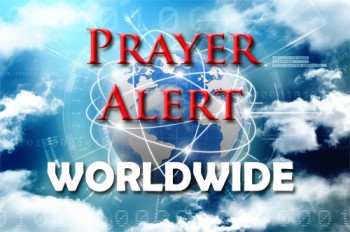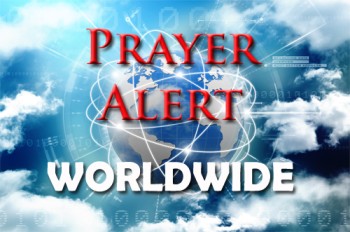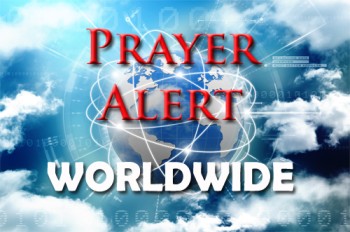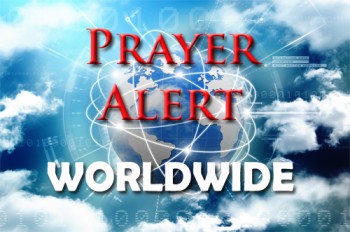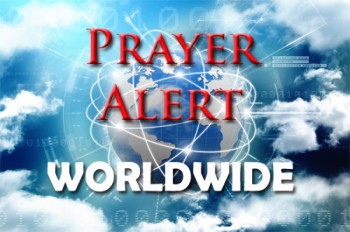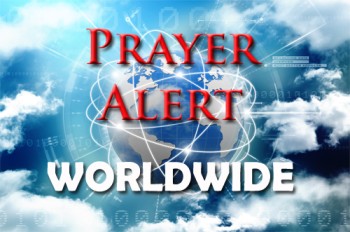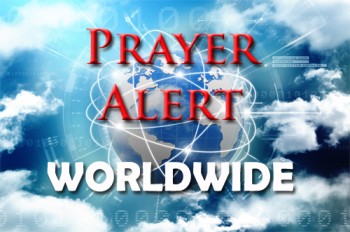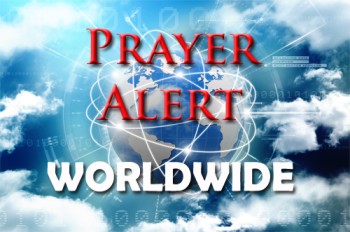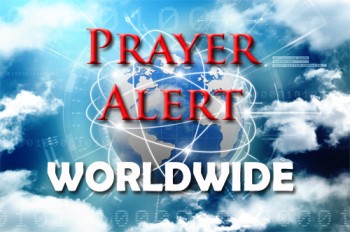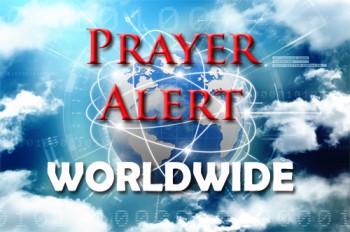Displaying items by tag: Syria
Syria: Alawite women living with fear after targeted violence and kidnapping
In western Syria, families live with fear after reports of kidnappings targeting women from the Alawite minority. Survivors describe being seized by armed men, beaten, threatened, and sometimes assaulted while held in secret locations for days or weeks. Human rights groups have recorded dozens of cases since the overthrow of Bashar al-Assad (an Alawite) in December 2024, but many families say the authorities have failed to investigate properly. Some victims were questioned about their identity and accused because of their background, leaving deep trauma and stigma. Several families fled their homes, afraid of retaliation if they spoke publicly. Even after release, women struggle with nightmares, broken relationships, and isolation. The crisis highlights how instability can expose vulnerable people to exploitation and revenge.
Syria: US moves 150 IS prisoners, thousands to follow
US forces have begun transferring IS prisoners out of Syria, moving 150 detainees to Iraq under plans that could see up to 7,000 relocated. The move follows growing instability after Kurdish-led Syrian Democratic Forces (SDF) withdrew troops from parts of northeast Syria, raising concerns over the security of prisons and detention camps holding thousands of IS members and affiliates. US officials said recent unrest allowed around 200 low-level fighters to escape one facility, though many were later recaptured. More than 10,000 IS fighters remain imprisoned in Syria, alongside thousands of women and children connected to the group. The transfers are being carried out in coordination with the Iraqi government as part of efforts to prevent a resurgence of IS and maintain regional security. The changes come amid a wider political shift, with Syria’s new government seeking to reassert control after the fall of Bashar al-Assad. A ceasefire has been agreed with the SDF, which has been urged to integrate into the Syrian state, marking a significant transition in security arrangements.
Syria: government tells Kurdish forces to leave Aleppo after deadly clashes
Syria’s army has moved reinforcements to areas east of Aleppo after ordering Kurdish forces to withdraw, following deadly clashes which have killed over 100 and displaced as many as 150,000. The Islamist-led government is seeking to reassert control nationwide, but efforts to integrate the Kurds’ autonomous administration and forces into the state have stalled, despite an agreement reached earlier this year. Kurdish-led forces deny building up troops and accuse the government of launching fresh attacks, while Damascus insists it is responding to provocation. Limited skirmishes and artillery fire have been reported, raising fears of a wider confrontation. In Qamishli, the main Kurdish city in the country's northeast, thousands of people demonstrated, accusing the government of breaking its promises and preparing a broader assault. With mistrust deepening, the situation remains volatile, threatening further suffering for civilians already exhausted by years of conflict. Christians in the region are asking for prayer: see
Syria: why al Sharaa’s visit to Washington is so important
In a stunning U-turn of diplomacy, Syrian president Ahmed al Sharaa - once known as Abu Mohammed al Jolani, former leader of the al-Qaeda affiliate Nusra Front - has arrived in Washington for historic talks with Donald Trump. He rose to power following the collapse of Bashar al-Assad’s regime and now leads Syria’s fragile transitional government. Once a fugitive with a $10 million US bounty, he is being welcomed as a potential partner in rebuilding his war-torn nation and countering extremist threats. Washington’s gamble is clear: support Sharaa to stabilise Syria, curb Iranian and Russian influence, and prevent renewed civil war. Yet challenges loom large: sectarian clashes persist, and doubts remain about his transformation from militant to unifier. The visit, the first trip by a Syrian head of state to the USA since the country gained independence in 1948, could redefine alliances and reshape Middle Eastern geopolitics for a generation.
Syria’s post-conflict reconstruction to cost at least $216B: World Bank
The World Bank has estimated Syria’s post-war reconstruction will cost at least $216 billion, with possible totals ranging from $140 billion to $345 billion. Its ‘Syrian Conflict: Physical Damage and Reconstruction Assessment (2011–2024)’ report found $108 billion in direct physical destruction—around one-third of the country’s total capital stock. Infrastructure suffered nearly half the damage ($52 billion), followed by homes and public buildings, with Aleppo, Rif Dimashq, and Homs the hardest-hit regions. Syria’s economy has shrunk dramatically, with GDP down 53% since 2010, from $67.5 billion to just $21.4 billion. The report warns that reconstruction costs now amount to ten times the country’s current GDP, while sanctions, depleted reserves, and minimal capital investment leave the government unable to rebuild alone. Finance Minister Yisr Barnieh called for urgent global support to restore infrastructure and rebuild communities. Following Bashar al-Assad’s flight to Russia last year, Syria’s new government under President Ahmed Al-Sharaa has begun reforms aimed at stability, investment, and national recovery.
Syria: worst drought in decades pushes millions to the brink
Syria is facing its worst drought in 36 years, devastating wheat production and deepening a nationwide hunger crisis. Farmer Maher Haddad has harvested barely a third of his normal yield, reflecting a 40% drop in wheat output across the country. The FAO estimates a shortfall of 2.73 million tonnes this year - enough to feed 16 million people - while rainfall has plunged 70%, crippling three-quarters of rain-fed farmland. Nearly 90% of Syrians already live in poverty; over 14 million are food insecure, and 9.1 million suffer acute hunger. Bread prices have skyrocketed, forcing families to borrow for daily food. Aid groups like the World Food Programme are providing emergency subsidies and direct payments to farmers, but long-term solutions such as new irrigation systems are hampered by years of war, soaring fuel costs, and economic collapse. Without sustained international support and adequate rainfall, Syria’s food crisis could escalate dramatically into 2026, threatening rural livelihoods and driving further displacement.
Israel bombs Syrian forces attacking a Druze area, then Damascus
Deadly violence has erupted in Suweida between Druze militias and Bedouin tribes, resulting in at least two hundred deaths, including children and civilians. The fighting, which began after the abduction of a Druze merchant, quickly escalated, prompting Syria's interim government to send troops into the previously autonomous Druze region. Israel launched airstrikes against these troops, claiming they were targeting the Druze, with whom Israel shares strong ties. The strikes drew international criticism and further inflamed tensions. Despite a ceasefire declared by Syria’s defence minister, reports emerged of government forces bombing Suweida, executing Druze civilians and looting homes. A Druze spiritual leader initially called for cooperation with authorities, but later urged resistance. Syria accused Israel of full responsibility for the violence, while the USA urged Israel to halt its strikes. The Israeli military has already carried out hundreds of strikes across Syria to destroy the country's military assets since the fall of the Assad regime. Breaking news: Israel has now bombed Damascus, targeting the presidential palace and the ministry of defence building. See
Syria: attack on Damascus church shakes Christian community
A deadly attack on the Mar Elias Church in Damascus on 22 June has shaken Syria, especially its Christian community. At least 25 people were killed when an armed man opened fire and detonated a suicide bomb. The attack, claimed by both IS and another group, has spotlighted serious security concerns for Syria's new government. Labour affairs minister Hind Kabawat called for unity, stressing the shared pain of Christians and Muslims. The end of Bashar al-Assad's brutal regime was meant to usher in a hopeful era, yet the recent attack raises questions about the new president, Ahmed al-Sharaa, and his ability to protect religious minorities. Despite promises of inclusivity, tensions and mistrust linger. The Mar Elias attack intensifies fears that minorities may be forced to leave the country, highlighting the fragile nature of Syria's recovery. The government's response to these security and sectarian threats will define its legitimacy and shape its future.
Middle East: Trump seals a deal with Saudi Arabia, lifts sanctions on Syria
Donald Trump began a Middle East tour with major policy and economic announcements, including lifting long-standing US sanctions on Syria - a country rebuilding after civil war and regime change. The move, which follows a request by Saudi Arabia’s de facto ruler, Crown Prince Mohammed bin Salman, signals a dramatic policy shift. Trump also unveiled a $600 billion Saudi investment commitment in the USA and signed a record-breaking $142 billion arms agreement with Riyadh. The visit prioritised economic cooperation over security concerns and featured meetings with top US business leaders and Saudi officials. The deals, on energy, defence, and infrastructure, could eventually total $1 trillion. Trump praised bin Salman but avoided any mention of the 2018 Khashoggi killing. He also reaffirmed a hard stance against Iran, offering conditional diplomacy. His broader goal: to realign regional power structures, bolster US business, and isolate Tehran while pushing for eventual Arab-Israeli cooperation.
Syria: misleading reports about ‘slaughter of Christians’
Open Doors has warned that false online reports about a Christian massacre in Syria could put Syrian believers at greater risk. While recent violence in Latakia and Tartus has killed over 1,500 people, including four Christians, there is no evidence that believers were specifically targeted for their faith. An Open Doors representative cautioned that misinformation could have serious consequences. He noted that governments and armed groups monitor online discussions, and false claims could lead to further persecution of Christians who had no involvement in spreading such reports. Though this latest wave of violence has not directly targeted Christians, Syrian believers - especially those who have converted from Islam - already face persecution. Many are fearful and some are considering fleeing the country. Churches in some regions have even cancelled services due to security concerns.
